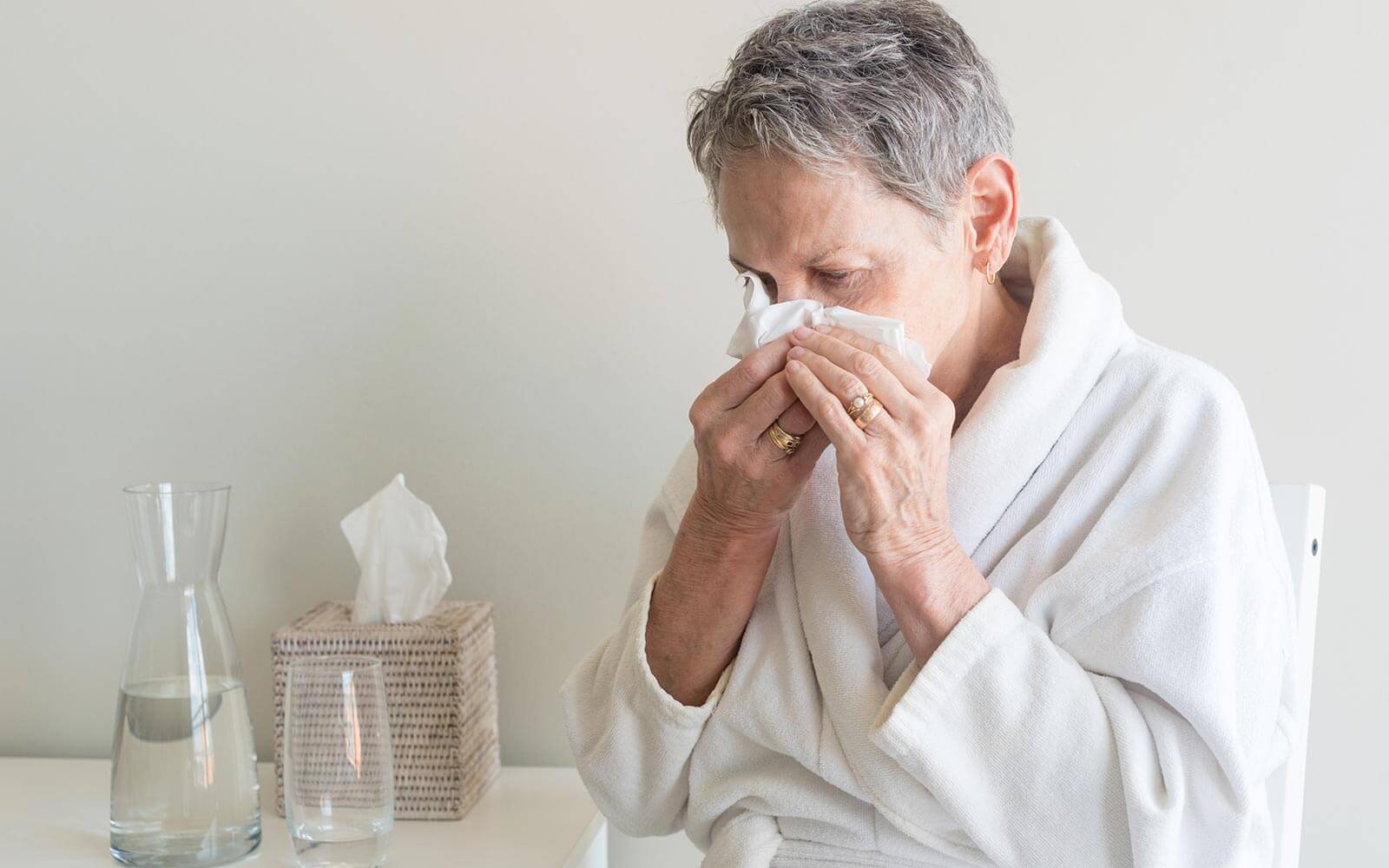
RSV in Older Adults: Symptoms and Treatment Outlook
Respiratory syncytial virus (RSV) is a highly contagious respiratory virus that causes infections of the lungs. While RSV is one of the most common causes of respiratory illness in children, many people aren’t aware that RSV also affects thousands of older adults every year.
Among healthy children and adults, an RSV infection is usually relatively mild, but the virus can cause serious complications in adults 65 years and older. What are the symptoms of RSV in older adults, what are the potential complications, and how is it treated? We’ll be answering those questions and more in this article.
How many people over 65 are affected by RSV each year?
RSV circulates every year during fall, winter, and spring, along with many other respiratory viruses. RSV is second only to seasonal influenza as a cause of medically significant respiratory tract illnesses in adults. In the U.S., this virus is estimated to cause 177,000 hospitalizations and 14,000 annual deaths in adults 65 and older.[1]
What are the symptoms and potential complications of RSV?
When adults contract RSV, they typically experience mild cold-like symptoms, including a runny nose, sore throat, cough, fatigue, and headache. RSV is often mistaken for the flu, as the two are essentially indistinguishable based on symptoms.
Because the immune system weakens with age, older adults are more prone to developing serious symptoms and complications. In severe RSV cases, the virus can spread to the lower respiratory tract, causing pneumonia or bronchiolitis (inflammation of the small airway passages entering the lungs). Signs of a severe infection include:
- Fever
- Severe cough
- Wheezing
- Rapid breathing (or difficulty breathing)
- Bluish skin due to lack of oxygen
Older adults are also more prone to developing congestive heart failure due to RSV, as the heart isn’t able to pump blood and oxygen to the body’s tissues. Older adults experiencing severe RSV symptoms may need to be hospitalized, and some may even die.[1]
What are the current treatments for RSV in older adults?
There is currently no cure for RSV. Like all viruses, RSV cannot be treated with antibiotics and simply has to run its course. As such, treatment is purely supportive and may include fever-reducing medications, supplemental oxygen, and IV fluids as needed.
Are there new medications in development for RSV?
For decades, researchers have been trying to develop a vaccine and other preventative medications for RSV without success. Thankfully, progress has been made and currently, four RSV vaccines and one monoclonal antibody treatment are in late-stage clinical trials.[2]
Vaccines work by stimulating the immune system to produce antibodies, just as it would if a person were exposed to the pathogen in daily life. To simplify clinical trials, all four vaccine manufacturers are testing their vaccines in people older than 60.
The other medication going through clinical trials is a monoclonal antibody treatment, which involves injecting people with antibodies that target the virus. Both vaccines and monoclonal antibody treatments serve to reduce RSV infection rates.
Early-stage data from the clinical trials suggests that the vaccines and monoclonal antibody treatment will be safe and effective in protecting older adults from this illness.
Is there a way to access these new medications?
While these medications are not yet available to the public, you can potentially access them through clinical trials. Clinical trials are a type of research on human health that evaluates the effects of medical interventions. The people who receive experimental treatments in clinical trials are volunteers, meaning they choose to partake.
If you’re 60 years old or older and are interested in receiving these new medications, consider signing up for a clinical trial with Triad Clinical Trials. Triad Clinical Trials has been operating since 2006 and is overseen by Dr. Richard Montgomery, a board-certified emergency medicine physician and practicing internist, who has been leading clinical trials for 25 years. These trials are free to participants and may include payment for time and travel.
By participating in a clinical trial, you’ll not only have a chance to receive a potentially life-saving medication, but you’ll also be helping researchers find a way to save the lives of countless others.
References:
- https://www.cdc.gov/rsv/high-risk/older-adults.html
- https://www.nature.com/articles/d41586-021-03704-y

